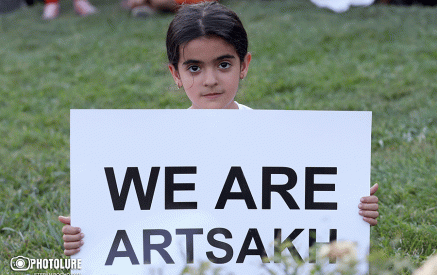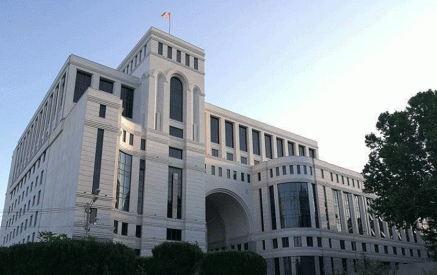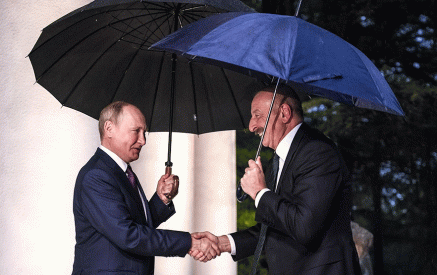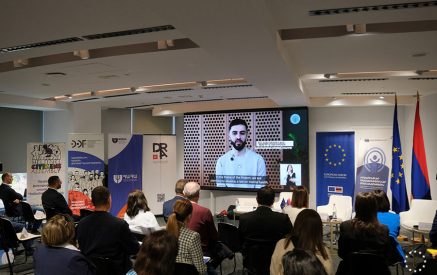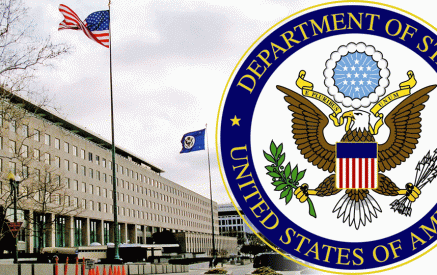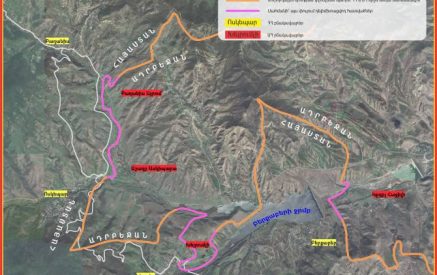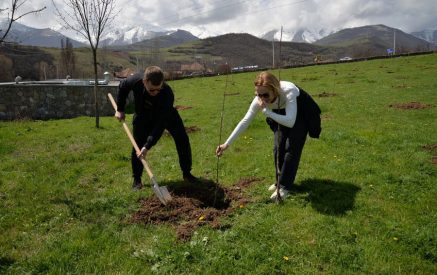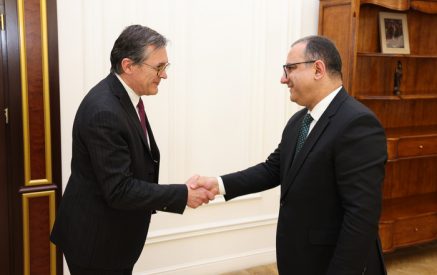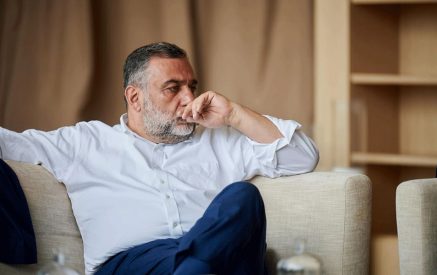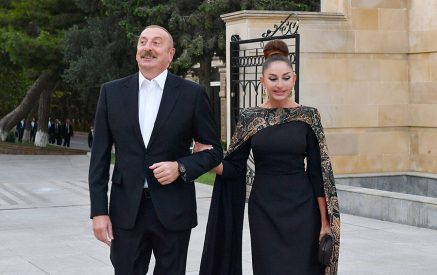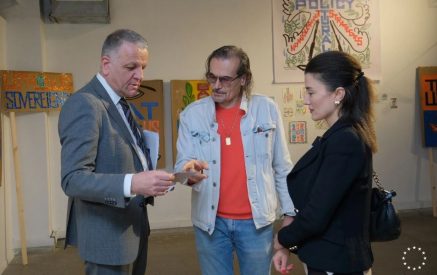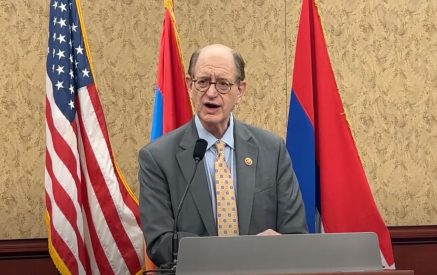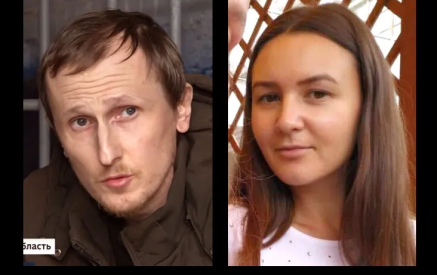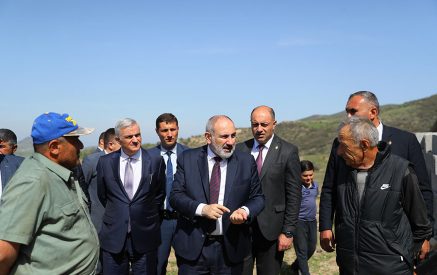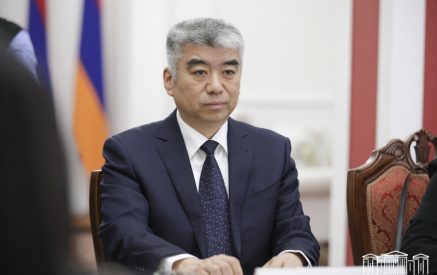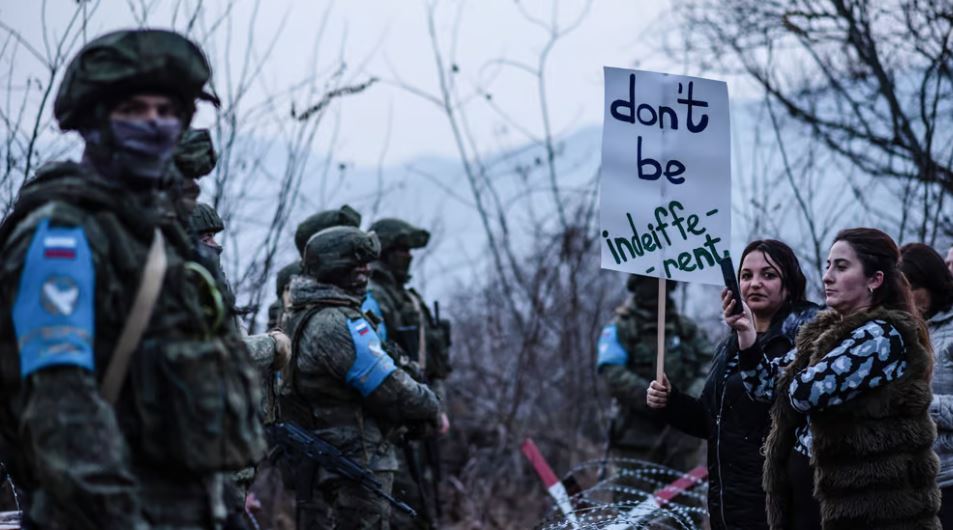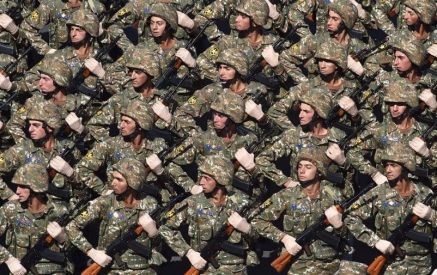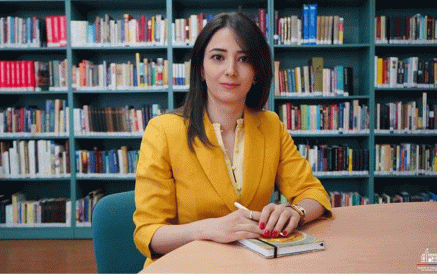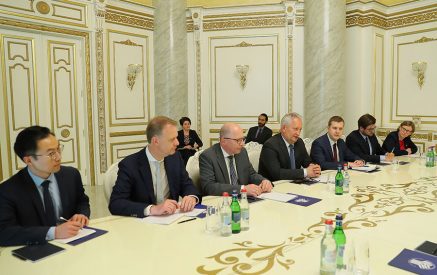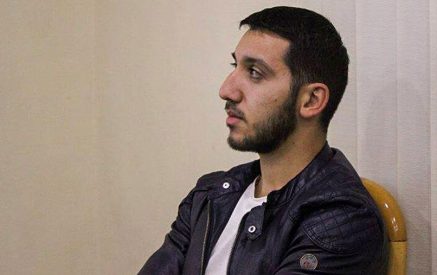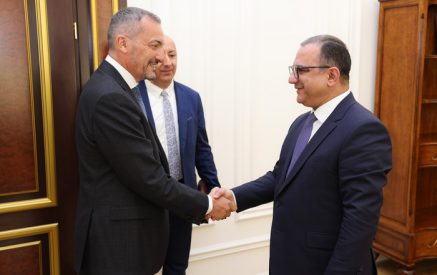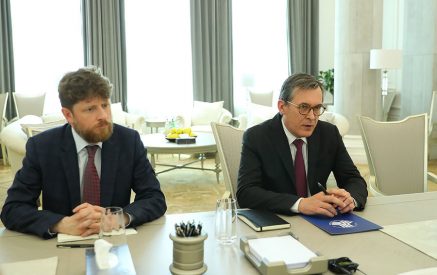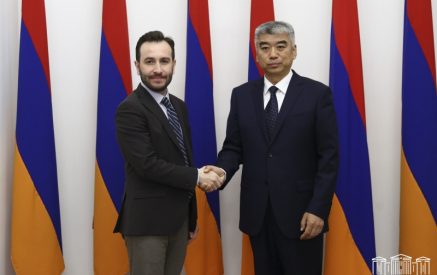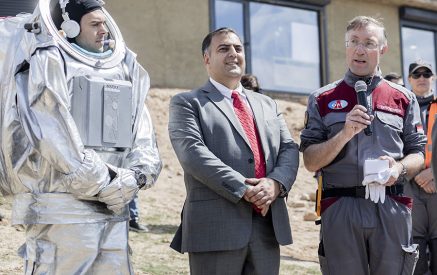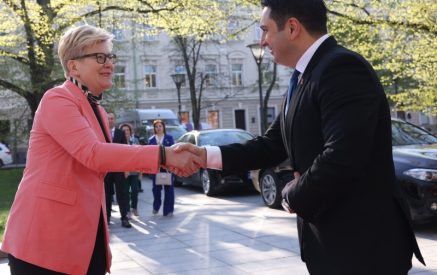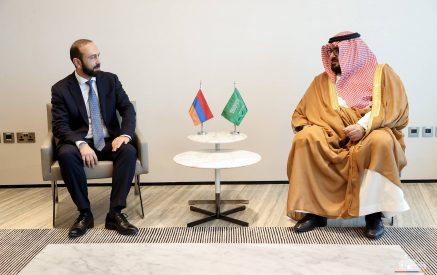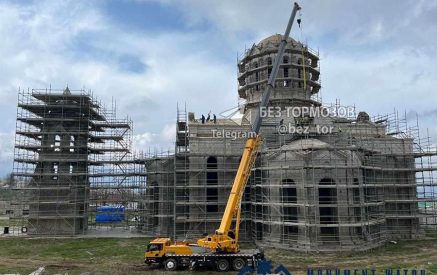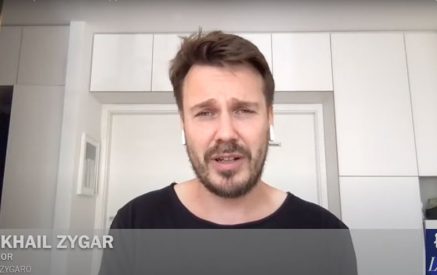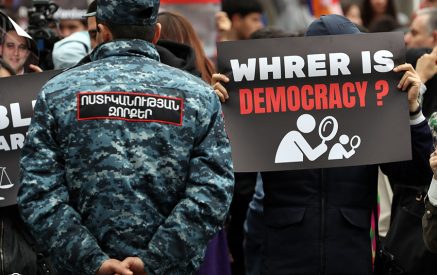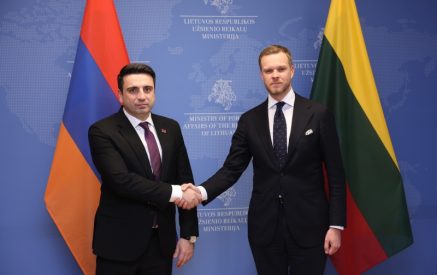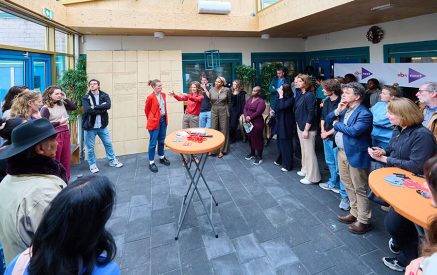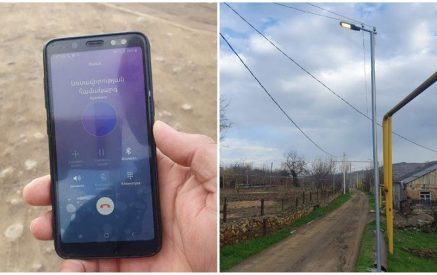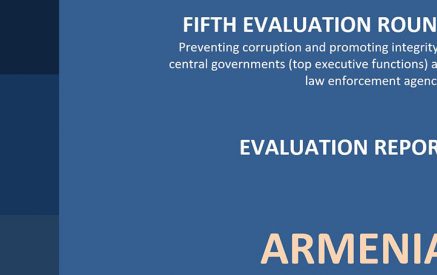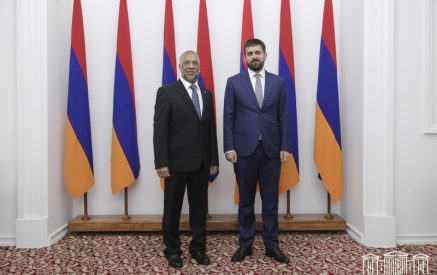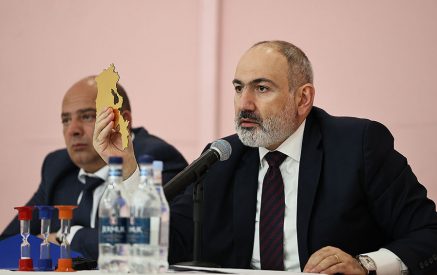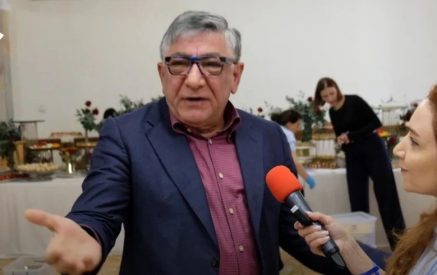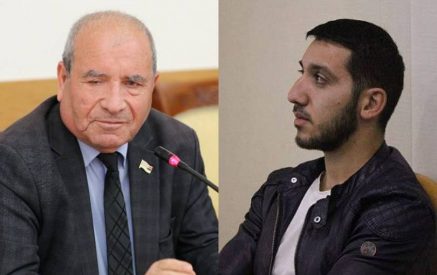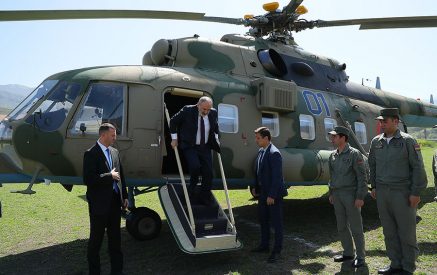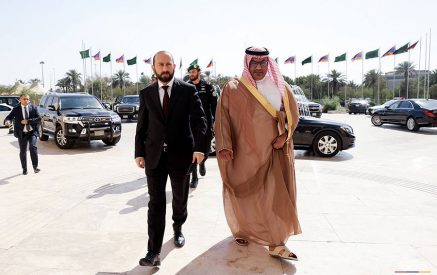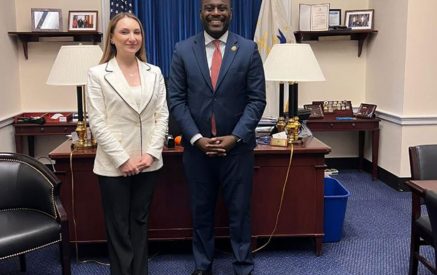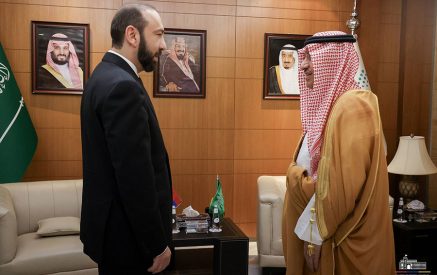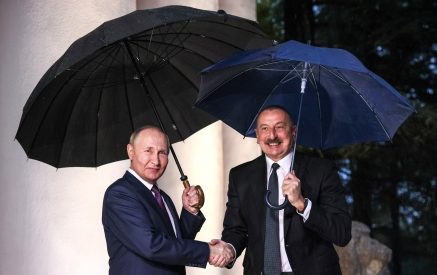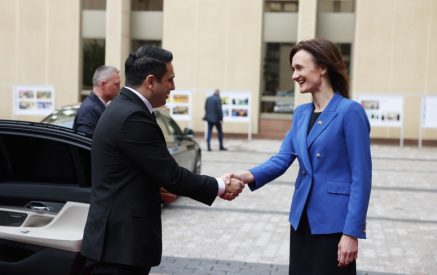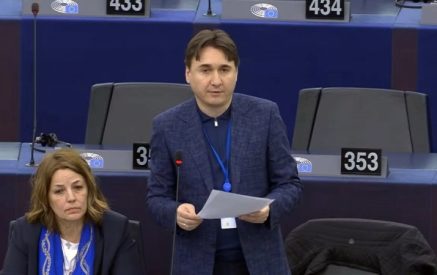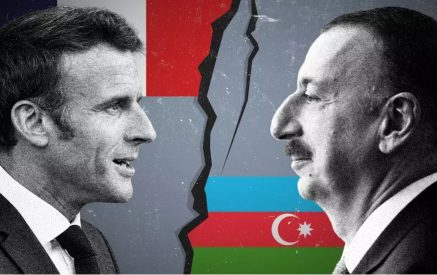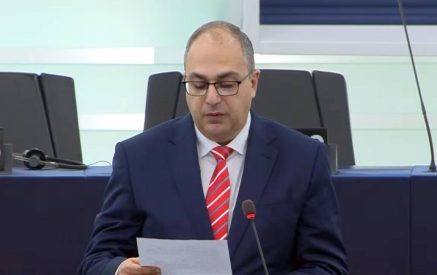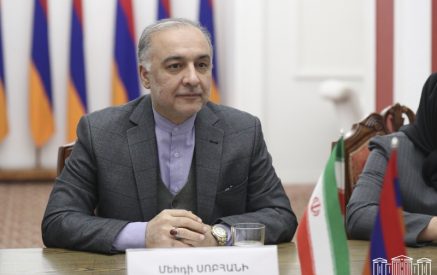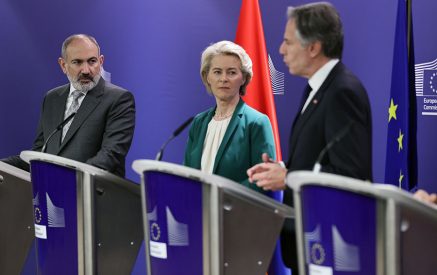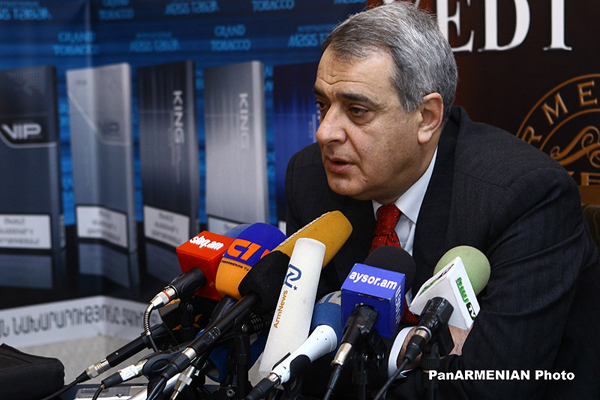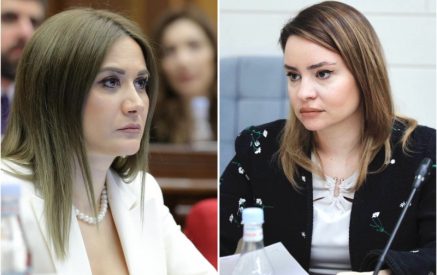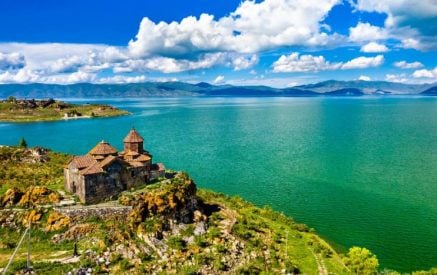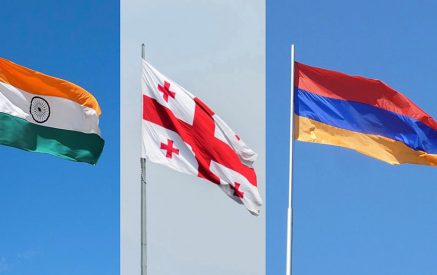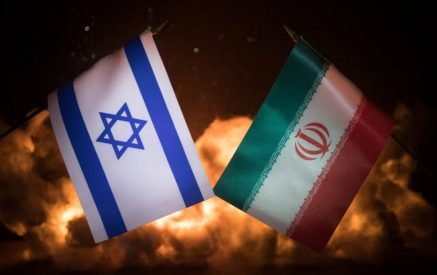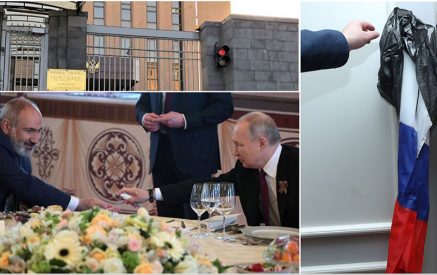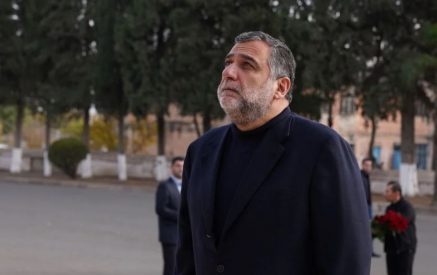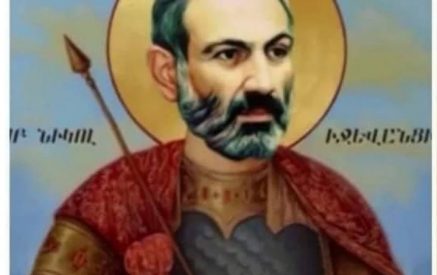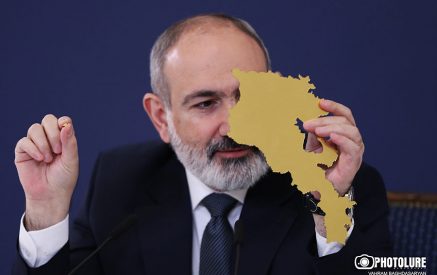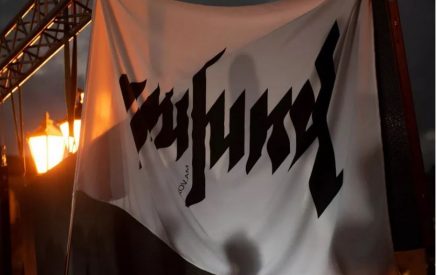Our interlocutor is the Senior Analyst of the Center for Regional Studies, RA President’s Special Envoy (1992-95), Head of the National Security Service of Armenia (1994-95) David Shahnazaryan
– On November 4, in Paris, the PACE Political Committee accepted the notorious report of the British deputy Robert Walter entitled “Rise of violence in Nagorno-Karabakh and other occupied territories of Azerbaijan”, which gave rise to many controversial interpretations in Armenia. The ruling class representatives argue that it will be on the shelf of the PACE; some representatives of the opposition class argue that this is the end of the world for us. Which of the views do you support?
– I do not see any excuse for the estimations by non-government representatives of Armenia’s delegation to PACE saying that everything is over, that this is the ultimate failure and so on, as well as the estimations by the representatives of the executive power, who display indifference and censure the PACE and emphasize that even if the Assembly accepts it, this document will have no legal force. Yes, the resolution by an international instance cannot have a direct enforcement power, except for the UN Security Council resolutions. But the documents accepted by the international organizations, including the PACE create a certain political climate and tendency.
Nothing is still lost with regard to the fate of the document and there is a chance to correct the situation, which requires an accurate assessment and pass to concrete steps rather than constantly argue that this report is packed with petrodollars, tastes caviar and smells oil. In reality, we have a huge evidence base in favor of us based on the international law, which, for some reason, we do not use. It’s enough to complain and understand that the problem is in us, that we must work under these conditions, put an end to weeping and whimpering that all of them are corrupted, and so on. It has not produced results and will not, on the contrary, it has already worked against us. The resolution adopted by the PACE Political Affairs and Democracy Committee was more negative for us than the draft.
Read also
– Even though the existence of this report is not only the fault of the Armenian delegation to PACE but which were their main negligence of duties? In any case, they were in the front line, where did they fail in your opinion?
– First of all, the members of the Armenian delegation to PACE had accepted a wrong approach by trying to fight against the personality of the rapporteur. It was necessary to understand that his nomination would not be changed, the arguments against his personality would not produce results but could further toughen his stance. Robert Walter was in the Parliament of the United Kingdom for 18 years. He is a well-known public and political figure and not only in the UK. He has a great experience to work not only in domestic but also foreign political and international organizations. In 2010, Bob Walter was appointed the Head of the delegation of the United Kingdom to PACE by Prime Minister David Cameron. It is noteworthy that Bob Walter was included in Russia’s “black list” for the realistic estimations about Russia’s actions in Crimea, which he had described as an invasion and annexation. Those who are in this list are not eligible for entry into the Russian Federation.
Incidentally, this is not only Walter’s but the PACE estimations, for which Russian delegation was exposed to sanctions by PACE. How could our NA delegation to PACE work effectively under such realities, which consists solely of supporters of Armenia’s accession to the Eurasian Union and did not miss the opportunity to act in the PACE for the defense of Russia’s interests and was trying to fight against Walter’s personality with such arguments that “he is a citizen of Turkey” and “is corrupt”. It was a tough mistake to refuse working with Walter, which was condemned in the document. It was necessary to clearly understand that it is necessary to negotiate with everyone, and particularly and especially with the ones who do not share your views, have the reverse and even a hostile posture. While there is no need to negotiate with the one who share your views entirely, it is necessary only to agree with them. Our delegation members to PACE should also realize one simple truth: the PACE and the international platforms are not only for presenting the domestic political conflicts.
There are also national interests, which it is necessary to cooperate seriously. While some members of our delegation are guided by the principle of “the worse, the better”. However, it was necessary to cooperate in the matters of national importance rather than waiting almost one year with the statements of internal use and the Olympic calmness about how this document will be adopted. Obviously, our delegation to the PACE that consists of the deputies defending solely Russia’s policy is unable to work effectively not only in this but also in many other matters.
I would not include an entire expert assessment in this interview, yet it is important to say that the PACE Political Affairs and Democracy Committee’s report drafted by Walter includes some subtle, not explicit nuances that demonstrate certain level of distress concerning Russia’s goal to further increase its influence on the conflict resolution process and to have military presence in the conflict zone.
– You said that it is possible to correct the situation. How?
– The staff of our parliamentary delegation to PACE should be changed because, as I mentioned, the current staff consists only of the apologists of the Eurasian Union, who at times even consistently defend the interests of Russia rather than the Republic of Armenia. We need to set a goal that the document should not be accepted by the above-mentioned Committee at the plenary session of PACE in January or if accepted, at least not in this way. It would be right to form a working group consisting of the representatives from the Parliament, Ministry of Foreign Affairs and maybe other agencies, as well as independent experts. The members of the group must fluently speak other foreign languages apart from Russian. I think that among the deputies in the group, it would be useful to include Tevan Poghosyan, Alexander Arzumanyan and Vardan Oskanyan.
It is also useful to include experts in the group who know the details of the Nagorno-Karabakh conflict, have sufficient knowledge, experience and skills to communicate with European political circles, particularly Richard Giragosian, Stepan Safaryan and Hovhannes Igityan. The government should provide funding for the group’s activities. The group’s work program, I think, should be based on the following three principles. Prior to the adoption, PACE should take into account that the November 4 resolution of the Committee on Political Affairs and Democracy:
* Has numerous controversies with the United Nations Security Council resolutions 822, 853, 874, and 884, even though it these resolutions are cited.
* Significantly is contrary to the objectives of the OSCE Minsk Group co-chairs, the three international principles and 6 elements of the peace settlement offered by them. Moreover, it jeopardizes the OSCE Minsk Group three chairmanship as an international format of the Nagorno-Karabakh settlements.
* It can contribute to the escalation of tension in the contact line in the event of the de facto non-operating ceasefire in the Nagorno-Karabakh area, as well as to foster new large-scale hostilities. The responsible for such developments will also fall on PACE.
* It will not contribute to the efficiency of the meeting of the presidents planned in the near future by the OSCE Minsk Group Co-chairs, moreover, it can hamper the organization of this meeting in general.
The prepared delegations should be sent to the European capitals. Obviously, it is not possible to work with all 47 member states of the PACE, but the countries whose parliaments, foreign ministers and political parties should be worked with are obvious. A separate and individual work should be conducted with the delegates of PACE who have a serious influence in this structure.
Consistent work should be carried out with the OSCE Minsk Group co-chair Russia and France, which are CU member states, but Russia should act not as a CE member, where there is a negative attitude towards Russia, but exclusively as an OSCE Minsk Group three-chairmanship member country. Although, I do not think the Russia is interested in defending Armenia’s interests at the international instances and particularly in the Council of Europe. Let us not forget that Russia has officially announced that it will defend the interests of Azerbaijan in all international structures. Russia formally being Armenia’s, the so-called, “strategic ally”, being an isolated country, has a goal to see Armenia in the same status.
For the effective operation of the Working Group, the OSCE Minsk Group American co-chair James Warlick has already created serious and perspective ground with his public estimations, and in this sense, it is also necessary to commence consultations with the French co-and the OSCE Chairman-in-Office Personal Representative Andrzej Kasprzyk, aiming that the Co-Chairs and Kasprzyk would come up with a joint statement or in the least would share Warlick’s already expressed concerns separately, although I am skeptical that the Russian co-chair Popov will display such a solidarity.
Based on my mentioned four provisions, I presented the possible actions and measures, in general, without details. I must also mention that it is necessary to more efficiently use Azerbaijan’s current deep contradictions with the EU structures, member states, as well as with the US and, of course, take into account that we do not have much time, Council of Europe Parliamentary Assembly will convene just two months later.
– Public discontents were raised in Armenia that the OSCE Minsk Group co-chairs, after the recent visit to the region, continue expressing a balanced stance under the condition of ceasefire violations, in case of using heavy artillery against the civilians they do not point out the infringer of the ceasefire, that the co-chairs put an equal sign between Armenia and Azerbaijan. How do you estimate the recent statements by the co-chairs?
– Prior to the regional visit, in some of their statements, as well as in the public speech of the US co-chair James Warlick, the co-chairs had the opportunity to state diplomatically that Azerbaijan is the initiator of the ceasefire violations. We need to clearly understand the complex geopolitical contradictory conditions that the OSCE Minsk Group co-chairs are currently operating, which is also mirrored on the status of the OSCE Minsk Group three-chairmanship. The Armenian side highlights the mediating role of the OSCE Minsk Group three-chairmanship, while Russia, Azerbaijan and Turkey seek to significantly reduce the role of the OSCE Minsk Group format and even to dissolve it.
Uninterruptedly and consistently increasing the tension in the contact line and on the Armenia-Azerbaijan border, Baku, in line with other objectives, I am sure that it is also striving to induce the OSCE Minsk Group Co-Chairs to openly announce that Azerbaijan is responsible. This statement will be a cause for Baku to accuse the OSCE Minsk Group of not being objective (like it is criticizing the international organizations, EU structures, member states and the US) and totally refuse the format of the OSCE MG three-chairmanship as an international platform for the Nagorno-Karabakh conflict settlement, which has no alternative for the Armenian sides.
Nelly GRIGORYAN,
Aravot Daily

